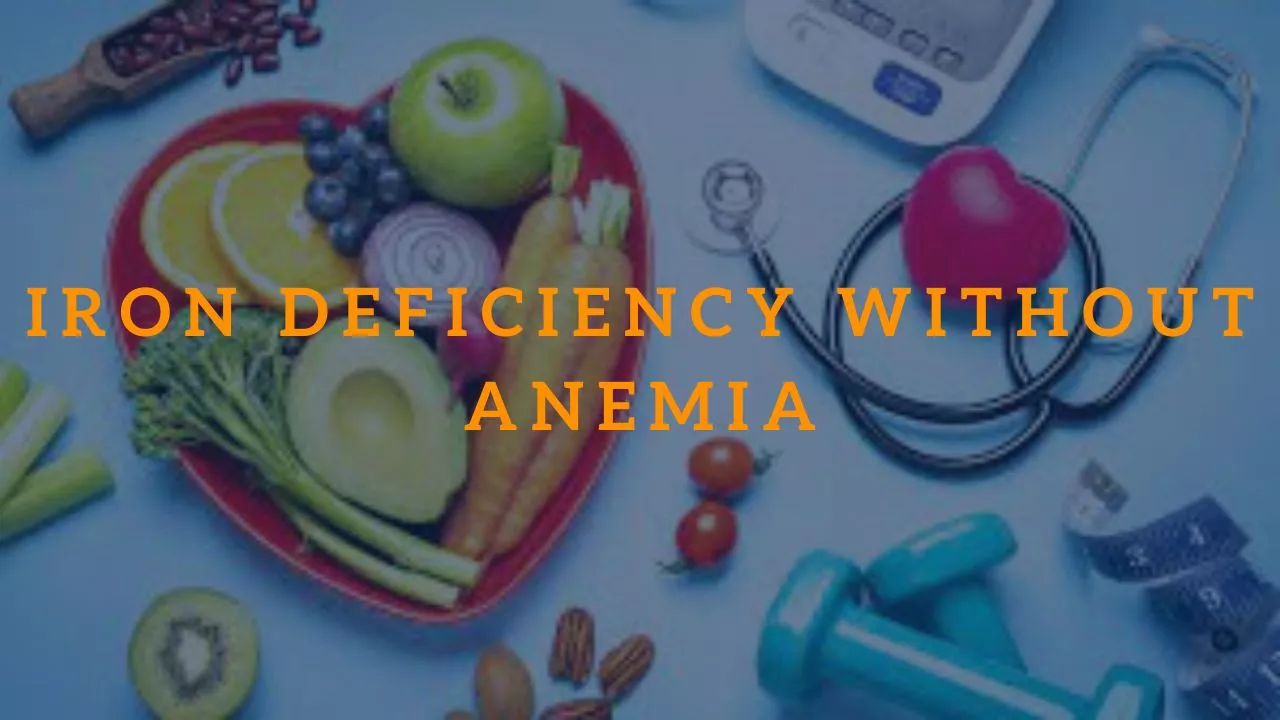Iron deficiency is a common condition that occurs when the body doesn’t have enough iron. While anemia is a well-known consequence of iron deficiency, many people may not be aware that iron deficiency can occur even without anemia. In fact, iron deficiency without anemia is more common than you might think. In this article, we’ll explore the causes, symptoms, and treatment options for iron deficiency without anemia.

What Causes Iron Deficiency Without Anemia?
Iron deficiency without anemia can occur for a variety of reasons. In some cases, it may be due to a lack of dietary iron. Iron is an essential nutrient that the body needs to make hemoglobin, a protein in red blood cells that carries oxygen from the lungs to the rest of the body. If you don’t get enough iron in your diet, your body can’t produce enough hemoglobin, which can lead to iron deficiency.
Other common causes of iron deficiency without anemia include:
- Chronic blood loss: If you have a condition that causes chronic blood loss, such as heavy menstrual periods, hemorrhoids, or a gastrointestinal condition like ulcerative colitis, you may be at risk for iron deficiency without anemia.
- Pregnancy and breastfeeding: Pregnant and breastfeeding women need more iron than the average person to support the growth and development of their baby. If they don’t get enough iron through their diet or supplements, they may develop iron deficiency without anemia.
- Inflammatory bowel disease: Inflammatory bowel disease (IBD) can cause inflammation in the intestines, which can interfere with the absorption of nutrients, including iron.
- Endurance athletes: Endurance athletes, such as runners and cyclists, are at risk for iron deficiency without anemia because they have higher iron requirements due to the increased red blood cell turnover that occurs with exercise.
What Are the Symptoms of Iron Deficiency Without Anemia?
Iron deficiency without anemia can cause a range of symptoms, including:
- Fatigue and weakness: Because iron is essential for producing hemoglobin, a lack of iron can make you feel tired and weak.
- Pale skin: Iron is responsible for the red color in blood, so a lack of iron can make your skin appear pale or even yellowish.
- Shortness of breath: If you’re not getting enough oxygen to your cells due to a lack of hemoglobin, you may experience shortness of breath, especially during physical activity.
- Headaches: Iron deficiency can cause headaches, especially if the deficiency is severe.
How Is Iron Deficiency Without Anemia Diagnosed?
Iron deficiency without anemia is diagnosed through a blood test that measures your iron levels. Your doctor may also order additional tests, such as a complete blood count (CBC), to rule out anemia or other conditions that can cause similar symptoms.
What Are the Treatment Options for Iron Deficiency Without Anemia?
The treatment for iron deficiency without anemia depends on the underlying cause. If your iron deficiency is due to a lack of dietary iron, your doctor may recommend changes to your diet or iron supplements. If your iron deficiency is due to chronic blood loss, your doctor may recommend treating the underlying condition, such as hemorrhoids or ulcerative colitis.
In some cases, intravenous (IV) iron may be necessary to quickly restore iron levels. This is especially true for people who are unable to absorb iron through their gut due to conditions like IBD.
Conclusion
Iron deficiency without anemia is a common condition that can cause a range of symptoms, including fatigue, weakness, pale skin, shortness of breath, and headaches. If you’re experiencing these symptoms, it’s important to talk to your doctor to determine the underlying cause and develop a treatment plan
